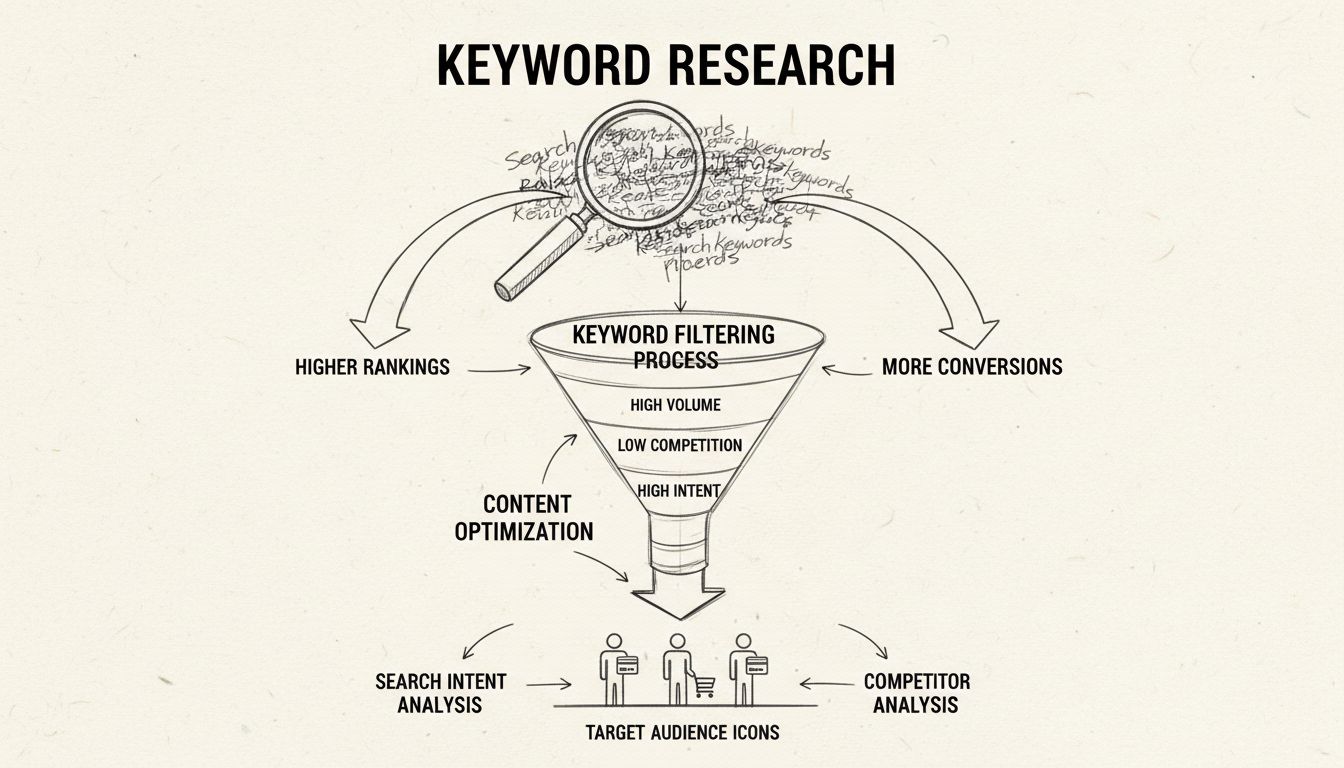
Why Is Keyword Research Important for Affiliate Marketers?
Discover why keyword research is crucial for affiliate marketing success. Learn how to optimize content, increase visibility, attract targeted audiences, and bo...
Learn the importance of keywords in affiliate marketing, including types of keywords, research methods, and optimization strategies to boost your SEO and increase traffic.
Keywords are specified words or phrases input into search engines by users seeking information, products, or services. Within affiliate marketing , these keywords serve as the connection between potential customers and the affiliate ’s content, aiming to boost website traffic and conversion rates. By comprehending and targeting the appropriate keywords, affiliates can ensure their content reaches their intended audience, thereby achieving better visibility and engagement.
The role of keywords in affiliate marketing is indispensable for a multitude of reasons:
Keywords in affiliate marketing can be categorized into several types, each serving a specific purpose and strategy:
Effective keyword research is foundational for affiliate marketing success . Here’s how affiliates can approach the process:
Commence with basic phrases related to your niche. Put yourself in your audience’s shoes and consider what they might search for. Enhance your list using tools like Google’s auto-suggestions and forums to capture a wider array of potential keywords.
Several tools are instrumental in conducting thorough keyword research:
When evaluating potential keywords, consider the following metrics:
Despite their lower search volumes, long-tail keywords often lead to higher conversion rates due to their specificity. They face less competition and better target niche segments of your audience, making them a strategic choice for affiliates seeking quality over quantity in traffic.
Identifying the keywords your competitors rank for can reveal strategic gaps in your approach. Utilize tools like SEMrush to scrutinize competitors’ keyword strategies and capitalize on missed opportunities by offering unique content.
Once keywords are identified, they must be effectively integrated into your content:
Monitoring keyword performance is essential for refining strategies and ensuring continued success. Utilize tools such as Google Analytics and Google Search Console to track rankings, CTRs, and conversion rates. Regular analysis helps in adjusting strategies to keep pace with changing search trends and competition.

There are a few different ways to find keywords. The most common is to use a keyword research tool like Google AdWords, Keyword Planner or Moz Keyword Explorer.
The main purpose in SEO will vary depending on the website and its goals. The most common uses for keywords include ranking higher in search engine results pages (SERPs), understanding the needs and wants of the target audience, and improving the chances of being found by users.
If you are trying to find out which keywords your competitors are using, you can use a tool like Google AdWords Keyword Planner.
Master the art of keyword research and optimization to enhance your affiliate marketing strategy and drive more traffic.

Discover why keyword research is crucial for affiliate marketing success. Learn how to optimize content, increase visibility, attract targeted audiences, and bo...
Keyword research is a foundational technique in digital and affiliate marketing for identifying valuable search terms. Learn how to find the right keywords, imp...
A search term is a marketing terminology of the text that the user types in a search bar. It consists of one or more keywords.
Cookie Consent
We use cookies to enhance your browsing experience and analyze our traffic. See our privacy policy.